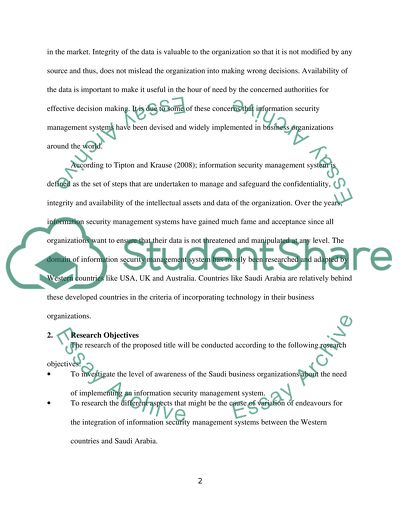Cite this document
(“Information security management system in business organisations in Thesis Proposal”, n.d.)
Retrieved from https://studentshare.org/health-sciences-medicine/1409177-information-security-management-system-in-business
Retrieved from https://studentshare.org/health-sciences-medicine/1409177-information-security-management-system-in-business
(Information Security Management System in Business Organisations in Thesis Proposal)
https://studentshare.org/health-sciences-medicine/1409177-information-security-management-system-in-business.
https://studentshare.org/health-sciences-medicine/1409177-information-security-management-system-in-business.
“Information Security Management System in Business Organisations in Thesis Proposal”, n.d. https://studentshare.org/health-sciences-medicine/1409177-information-security-management-system-in-business.


